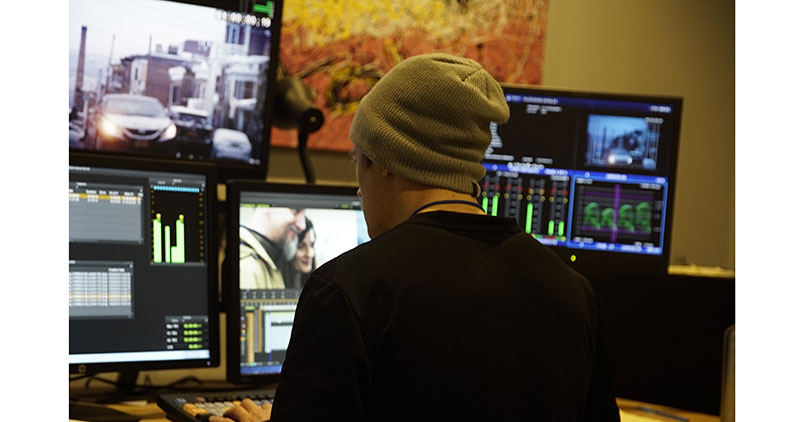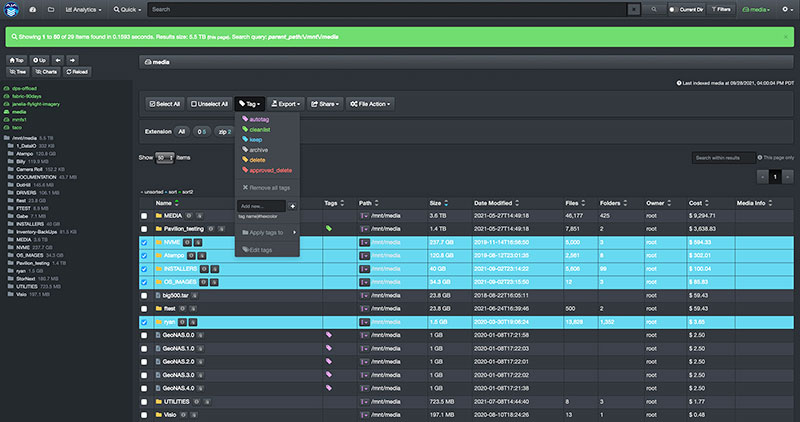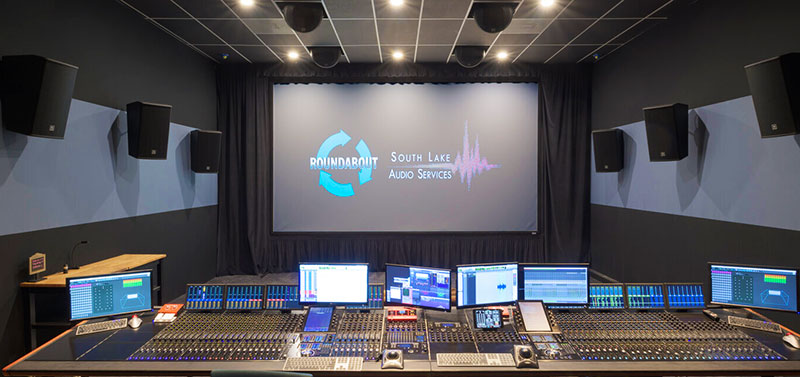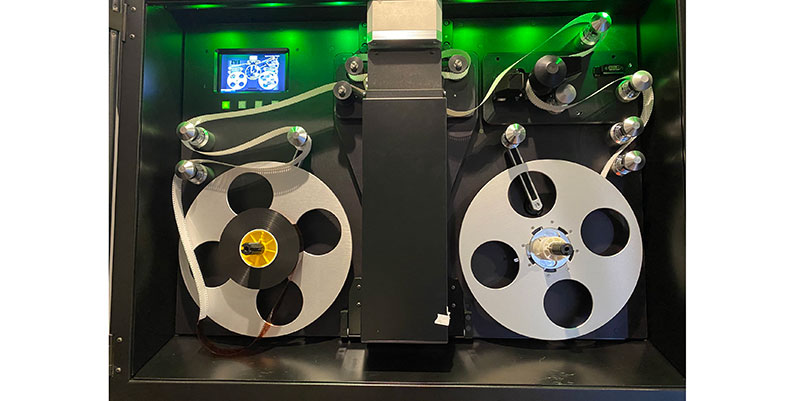Roundabout keeps its services reliable, its clients’ files secure and its performance fast using AJA Diskover software to index all media across their storage and distributed file system.

Virtual production, UltraHD and HDR workflows give producers new ways to compete for audiences but they also pose challenges for creative facilities and post houses, who still need to store, manage, access and securely share the massive files that accompany the productions. The post production team at Roundabout Entertainment in LA have learned to handle those challenges with new data management strategies that also help them prepare for future changes.
VP of Technology James Jan leads the engineering team at Roundabout, where the facility is equipped to handle specialities ranging across restoration mastering to colour correction for modern streaming series. He said, “We restore a lot of old films, which means we’re dust-busting and colour correcting, but we also handle post for a huge amount of the new streaming content, which requires IMF deliverables and audio dubbing.”
Starting out 18 years ago, James comes from a background in post as a systems administrator for Deluxe, followed by experience in different roles and companies. Since joining Roundabout seven years ago, he has moved into engineering IT and IOTC, their digital transfer department. He said, “I spend a lot of time researching new approaches and tools, and figuring out how we can use them to improve our services here.
Expanding Data, Bigger Files
“When I first got to Roundabout, the facility was an audio house that had just opened a colour department. It had just begun investing in SANs and associated security measures because the company’s new post work meant it had to adhere to MPA and TPN (Trusted Partner Network) requirements. I helped with the transition, and we began adopting a whole series of new technologies for the network, with a focus on security, reliability and performance.”
Since then, they adapted as storage and network systems rapidly advanced to accommodate the post industry’s move away from HD toward 4K and even 8K. Adoption of higher resolution workflows has meant bigger file sizes, making faster, higher capacity storage systems a necessity for post houses like Roundabout.

AJA Diskover tag management
“We started out with spinning disks, then moved to SSDs and are now looking into NVME (nonvolatile memory express) storage,” James said. “A majority of our storage is SAN-attached and keeps growing, which incurs considerable cost that our engineering team is working to control. AI also has potential, but is something we’re investigating cautiously as it’s still so new.”
To manage their on-premises NAS and SAN storage, they use a proprietary distributed file system, similar to managing a cloud environment. They also use AJA Diskover Media Edition software for indexing all of their storage and the distributed file system, which cumulatively hold about 30 petabytes of media files. “This represents a massive number of files that we need to be able to manage and find. We use AJA Diskover for file management and basic searches. Its open-source search engine ElasticSearch works on the backend, sifting through all 30 petabytes of data, so we can find files within seconds, whereas without it, a search might take hours,” said James.
Security Measures
The post team often handles content that has not yet been released. If a file were to leak, they would lose the client’s trust, making it critical to keep the production network separate from the network that clients access, and prevent everyone from gaining direct access to all of the content.
Consequently, clients aren’t permitted on the production network, but they often need file access, an interesting challenge that Diskover has helped overcome. With its web interface, those users and Roundabout’s internal team can access a copy of the file without risking the integrity of the actual file. When users access the content, the team also wants to be sure they have the proper authentications. Diskover has made it possible to a secure setup for both production and client users.
The customisable nature of the software makes this possible. “We can write proprietary scripts to help users copy and move files, generate proxies and convert audio files, which we simply couldn’t do before,” James said. “Previously, it required the engineering team to build web GUIs from the ground up, which was time-intensive and didn’t include authentication. With Diskover, we can do it quickly and with support for LDAP (Lightweight Directory Access Protocol) authentication to comply with security requirements.”

Audio services at Roundabout
Of the many types of scripts they have used Diskover to write, one of the first was for generating proxies. When the production and corporate scheduling teams select a file and click ‘generate proxy’, the script then sends the information to the transcode farm, where the proxy is generated and output. Earlier on, creating and fulfilling a proxy request took a lot of back-and-forth communication.
New Search Techniques
Among other ways that working with Diskover has changed their operations is the speed of searching for media files. James said, “Even if a file is indexed in a database, we can find it in minutes or even seconds, which has come in handy. When one user needed a file but only knew part of the file contents, she started typing what she knew and saw results pop up nearly instantaneously. I was amazed.
“Diskover also has an extensive plugin network, including the Media Info Harvest Plugin, which we use to scan all our files and store the immediate, pertinent info for those files. It’s so helpful because we can search through a file and easily understand its resolution, colour space, and all the associated metadata information available for it. In the future, Roundabout plans to adopt a more complex program that will make it easy for users to find files on the Xytech Diskover plugin for asset creation, for instance.”
This plugin finds and indexes newly restored online assets – from LTO tapes, removable hard drives and so on – making them available and searchable within the Xytech platform as well as within Diskover. The plugin assumes that assets restored to online media are placed in a folder using a specific naming convention. Those details are added to the asset within Xytech and the asset number is assigned as a field to the file in the Diskover Index. It avoids a lot of back and forth between Roundabout teams using the platform.
More Data on the Horizon

Roundabout restoration and remastering
James commented that the Diskover team’s continuous updates to the platform and new features, like this Xytech integration, is a huge advantage. “There are also regular speed and stability updates. For instance, they added caching into the scanning, which has sped up file scanning and indexing. Every time we upgrade, it adds more value, which I appreciate,” he said.
“With 8K on the horizon, we’ll be handling more data, which means storage needs will continue to grow, and facilities like Roundabout will need faster ways to store, access and manage that data. AJA Diskover Media Edition will certainly continue to be useful. Right now, a lot of industry discussion is circulating around AI, which I think has the potential to impact storage and data management despite the unknowns, and the regulations and guidelines that need to be implemented. It seems to be the next big thing, so we’re definitely keeping an eye on it. www.aja.com



